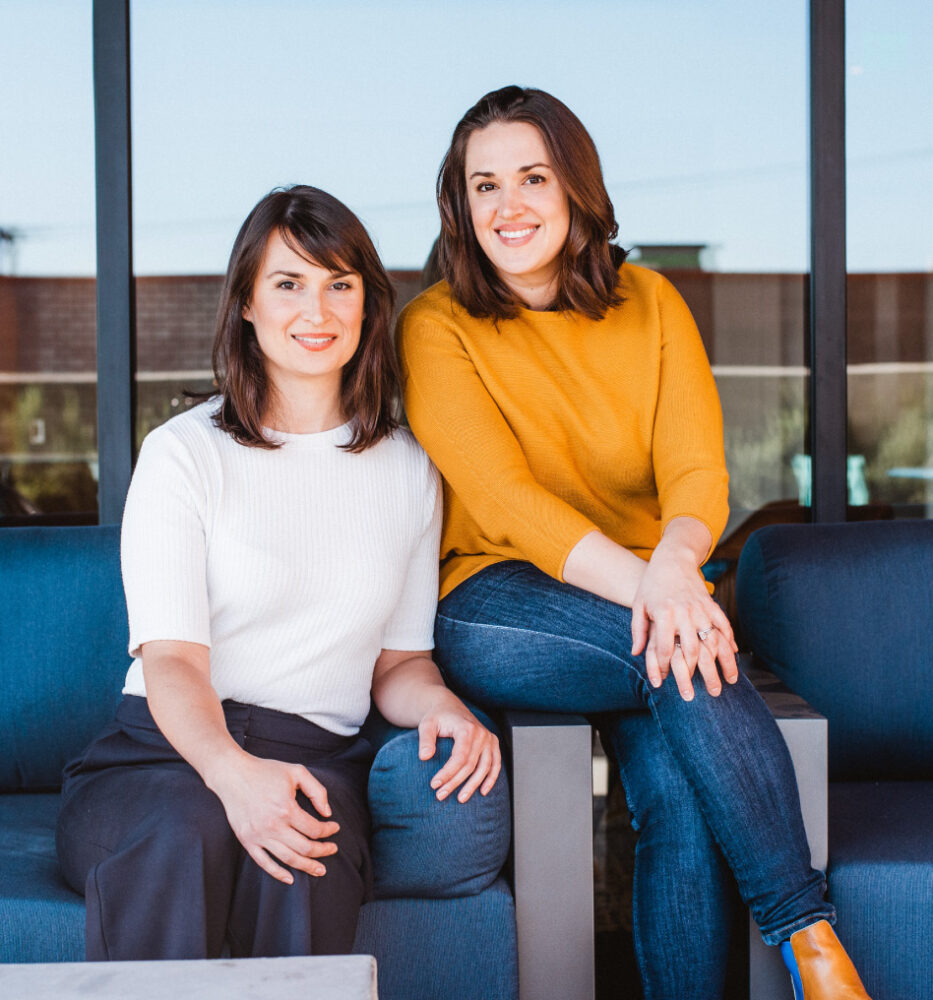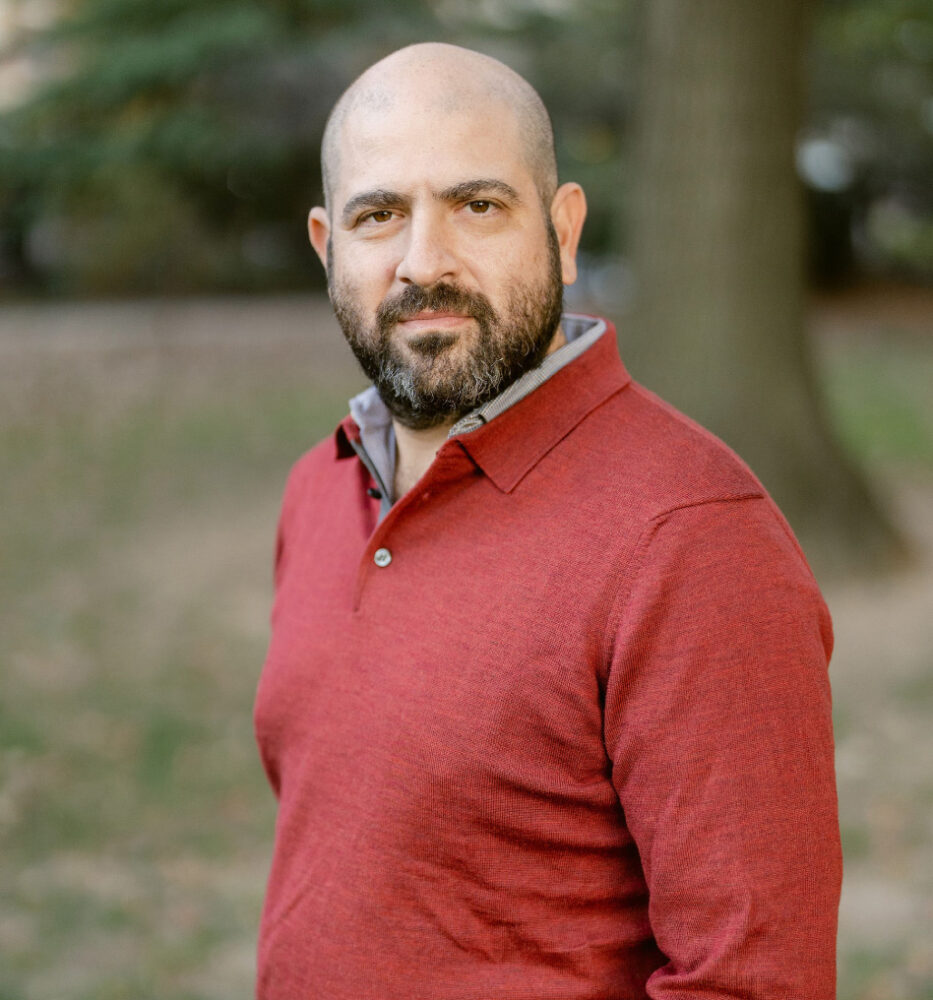Future Hospitality
podcast
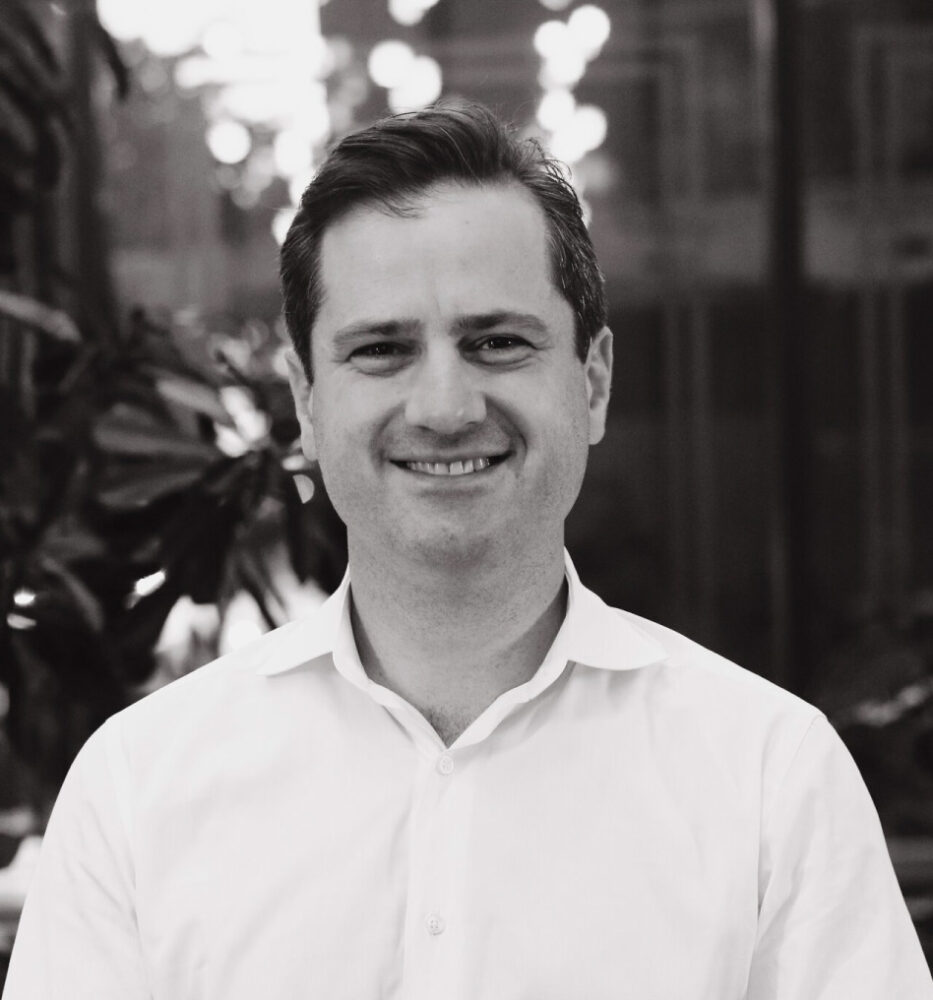
E36: Brand Freedom: Creating Independent Hotels that Work with Ethan Orley
August 31, 2022
Jeremy Wells: Hey, Ethan. Thanks so much for joining us today. We’re really excited to have you on the podcast.
Ethan Orley: Hey, Jeremy and Dustin. Good to be here.
Jeremy Wells: Yeah. I’m glad you could find some time. I know summer’s kind of a hectic time for hotel years and operators. We’re excited to spend a few moments here and get to know you a little bit better and let our listeners get to know you better too. So cool. Well, let’s go ahead and dive right in. I think just for our listener’s sake, just tell us a little bit about Oliver Hospitality and you and just kind of your background and some of the projects you’ve been involved in up till now.
Ethan Orley: Sure. Happy to. So Oliver Hospitality is one of two companies that I run along with my business partner, Philip Welker. We’re based out of Nashville, Tennessee. Our two companies are BNA Associates and Oliver Hospitality. One, BNA is our property development and ownership group. And Oliver Hospitality is our management company, but our hospitality definitely has a kind of a wider kind of consumer-focused brand stand versus BNA’s, it’s kind of our general partnership. We used to develop and acquire properties. But like I said, we’re Nashville based. Personally, I’ve been here for eight years, originally from suburban Detroit. And Phillip and I met in business school in New York. It was NYU in 2005. We both worked in the city for different companies. Lehman Brothers collapse happened. We either lost our jobs or we weren’t making enough to make it worthwhile to work who we were worth at the time and started playing tennis together in the West Side Highway. And I said, “Philip, what are you working on?” He goes, “Well, I’m trying to buy apartments down in Tennessee.” And he said, “What are you working on?” I said, “Well, I’m trying to buy anything I can out in the Midwest.” And he said, “Well, why don’t we just try to do something together?” I said, “Sounds like a great idea.” And where that led was a partnership that started with one little property, bought our first apartment deal together, happened to be in Clarksville, Tennessee, which at the time I had never heard of. And I was kind of having a moment of like, “Wait a second, I’m buying my first commercial transaction in a town I’ve never heard of, in a part of the country that frankly I had flown over my whole life.” And we did that deal. We still own it today. And that was really a fantastic kind of first entree.
And it was just six months later that we bought our first hotel project, which was at the time it was the St. Oliver Hotel. It was a 28-room hotel, if you want to call it that, in Knoxville, Tennessee. Again, a town I had never really spent any time and I had I think traversed through it on Highway 40 or I-75 going south and had a moment of like, “Wait a second, we’re going to buy a hotel in a town that I’ve really never spent time and that most people didn’t know much about.” And so that was really where it all started. Flash kind of forward, after we closed, we converted it and rebranded it as The Oliver Hotel because we thought St. Oliver kind of sounded like a cheap motel at the time. We thought we’d kind of glam it up and everybody was putting in like “the” in front of their hotel name at the time. So it’s like, okay, like the cool thing to do. So it’s The Oliver Hotel.
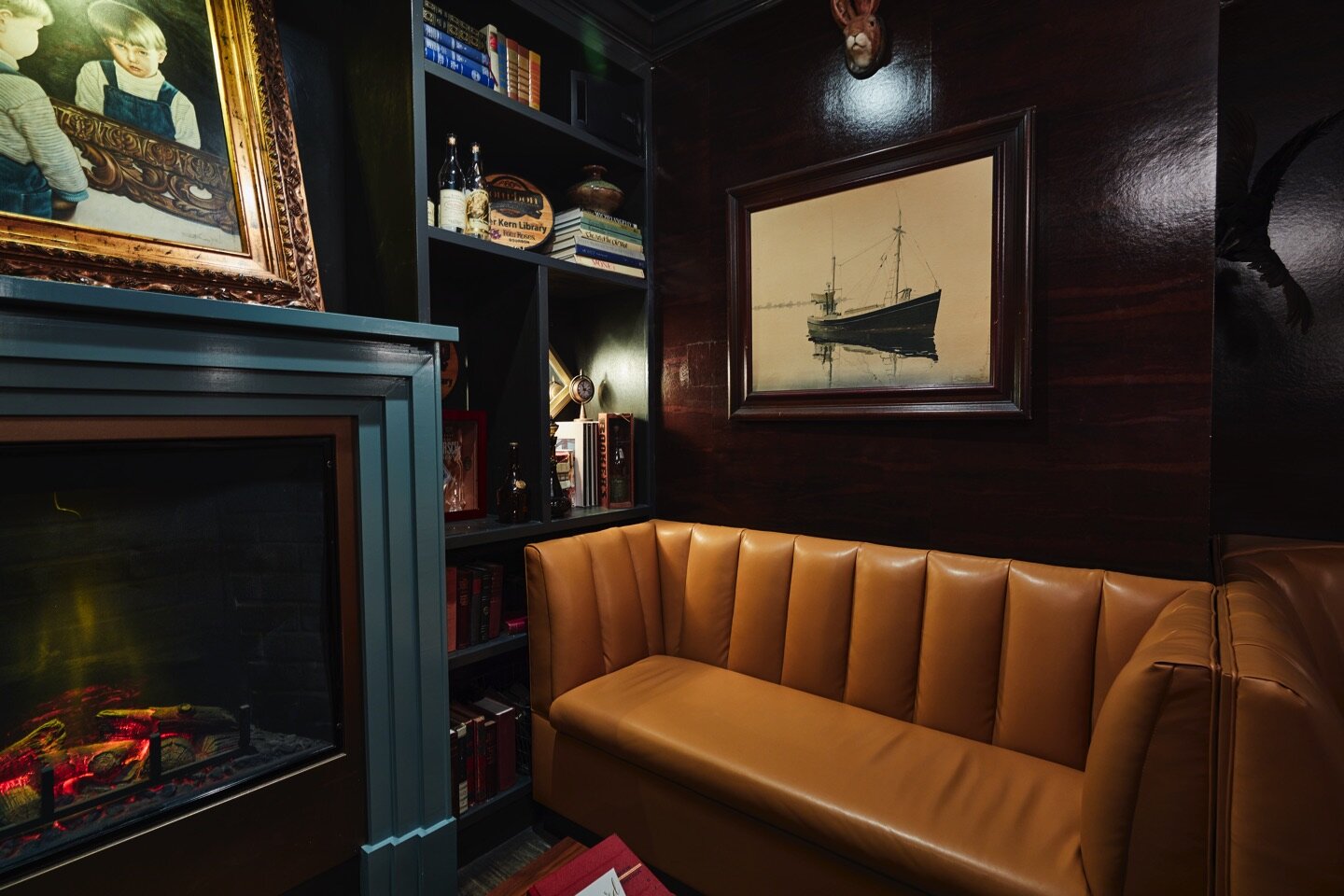
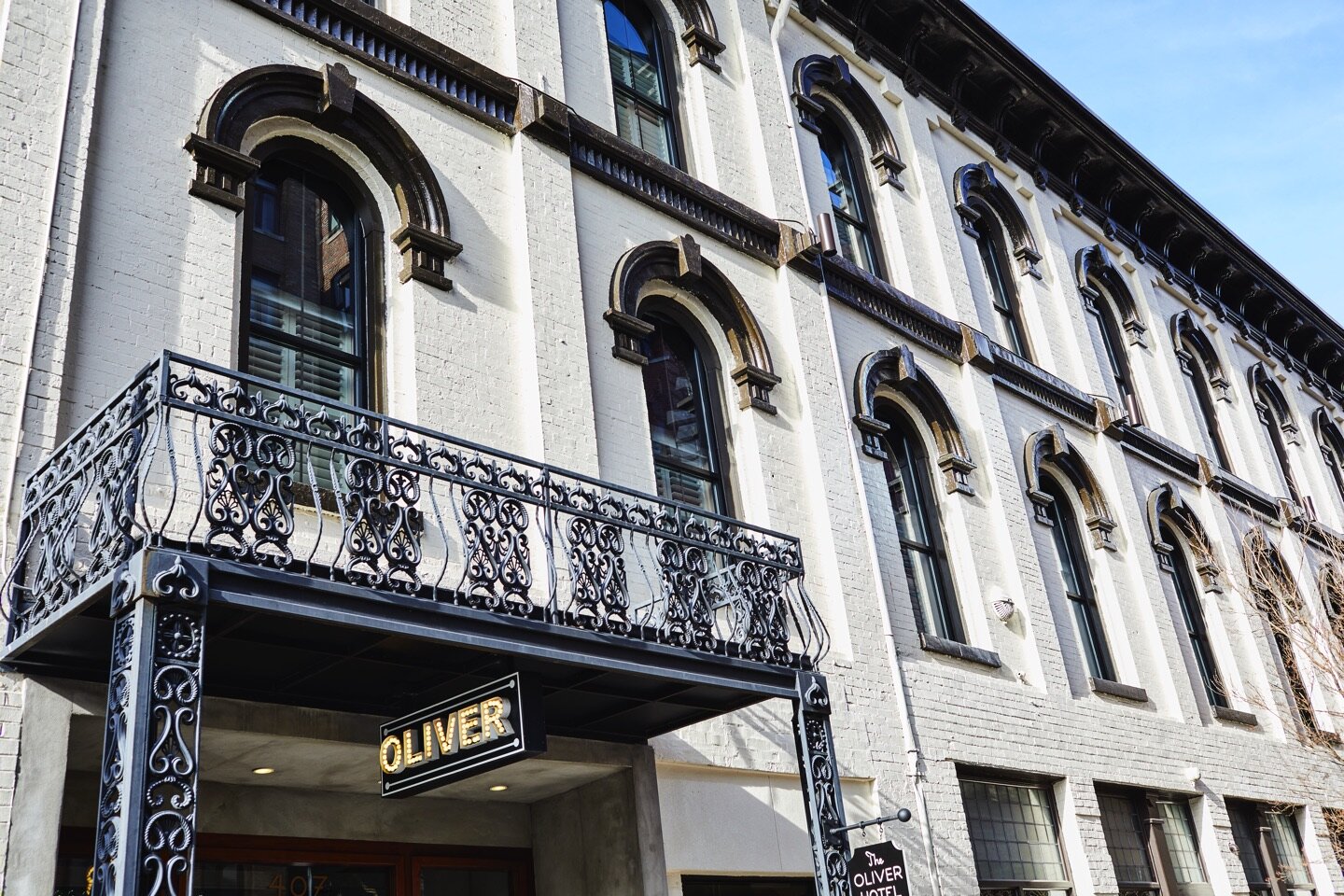
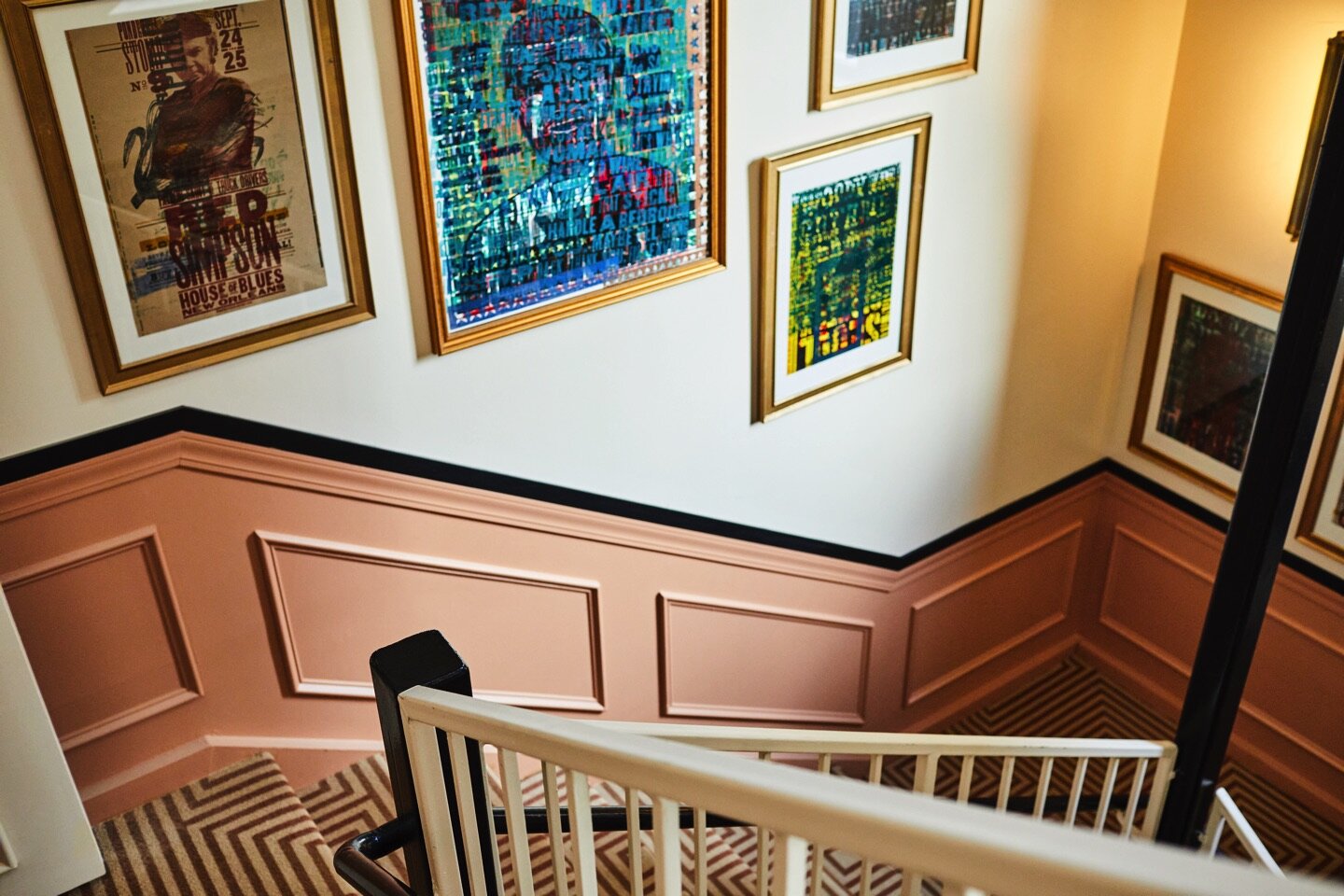
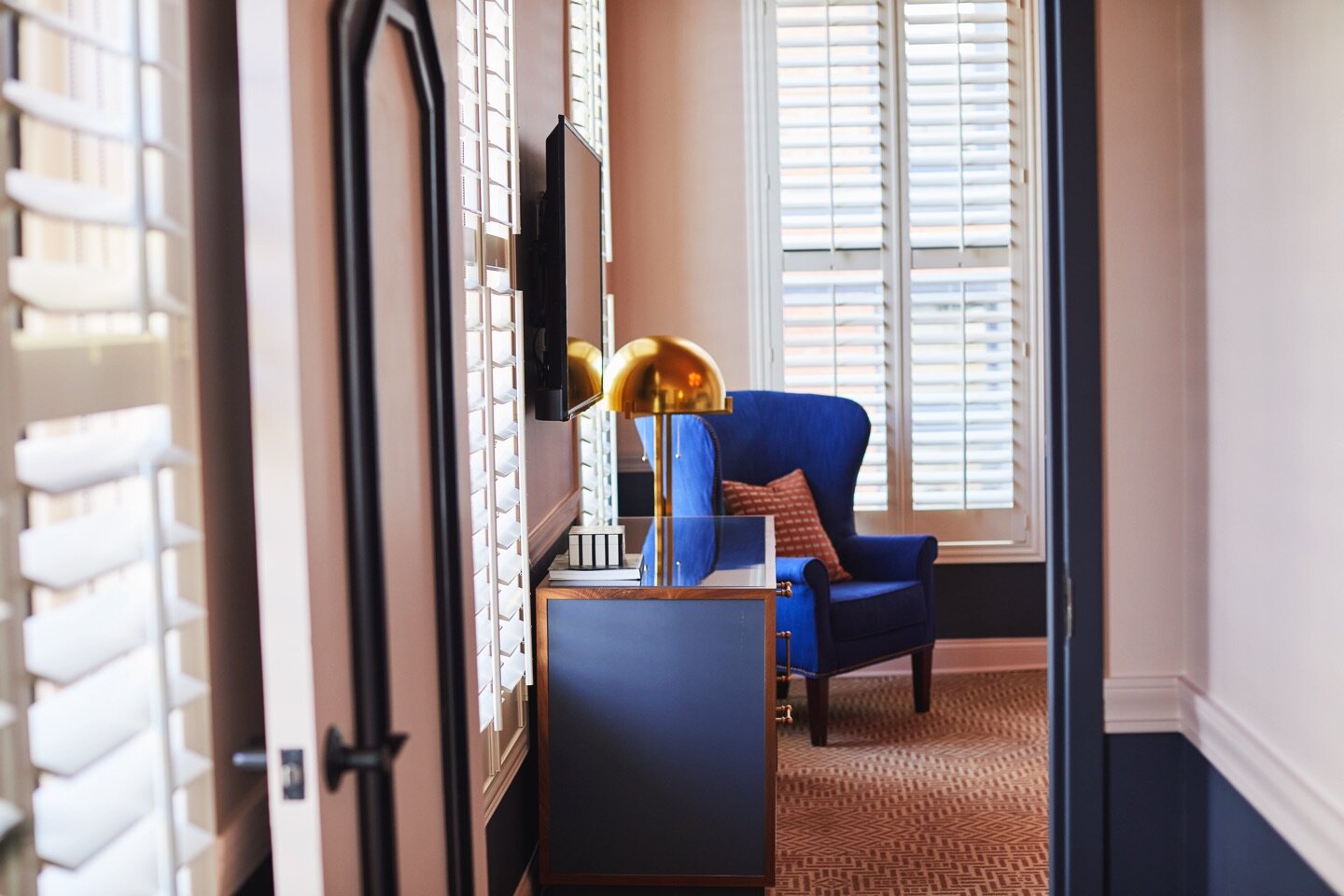
I could probably spend an hour talking about that specific project, but I’ll kind of give you some highlights. Number one, it was an interesting deal because everyone in the hotel business told us don’t do it. It’s in Knoxville. They don’t need a boutique hotel. It’s 28 rooms. You can’t make money in a 28-room hotel. All the reasons, “Oh, you guys have never been in the hotel business before. Who’s going to manage it? Who’s going to run the bar? Who’s going to run the restaurant?” I mean, all the questions you would probably get from your uncle telling you why you shouldn’t start a business. And you’re like, “But I think it’s a good deal.” And so we bought it at the heels of the recession or at least coming out of it and really got it for an incredible price at the time.
Looking back, the only other use for it was to convert it to condos. No one was thinking about hotels in 2010. And so Phillip kind of took on the construction and I took on management. I had a little rental desk in Tribeca in New York City when I was still living up there. And I was ordering pillows and toothbrushes and little shampoos and testing out property management systems and trying to get the property back into the 21st century because for a long time it was run as almost like a personal residence. There was a doorbell. And if you wanted a room, you rang the doorbell and Robyn might greet you with her paper calendar to see if she had space for you upstairs.
So we really did a full 180, but it had been built in the 1980s for the world’s fair. And it was built as the VIP hotel. And it was financed by the Booker Brothers who ended up going to jail many years later because they were out there sloshing money around. And so we ended up being the beneficiaries then. But it’s funny because you had all these Hollywood stars that stayed there during the world’s fair. And then as a lot of towns, post-Olympics, post world’s fair, really kind of went downhill because all that money dried up. And so Knoxville was no different. Downtown dried up and was boarded up. And this hotel really went nowhere.
So anyway, long story short is we opened the hotel. Lot of paint. Lot of new carpet and just kind of off-the-shelf and custom furniture. New branding. Opened a cool speakeasy bar. Opened a Tupelo Honey Restaurant, which is the first restaurant outside of Nashville where they got their start. Eventually, a couple years later opened Oliver Royale Restaurant and it was really this incredible process from start to finish. And it was the number one hotel in Knoxville and to some degree still is. And it was just an incredible experience to kind of just get our hands dirty on a really small hotel then to be kind of the best of class in its town. And we learned the management business from the ground up.
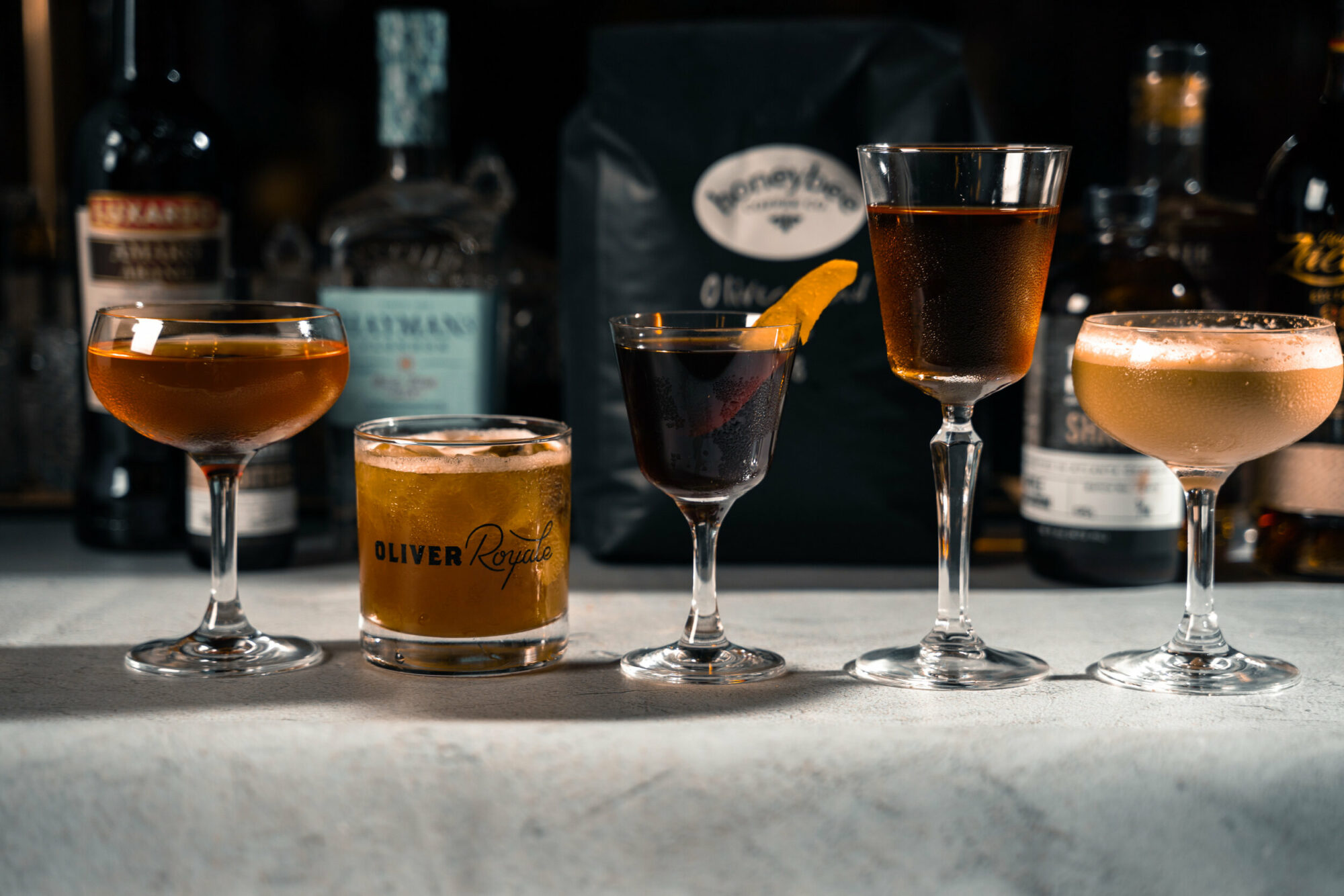
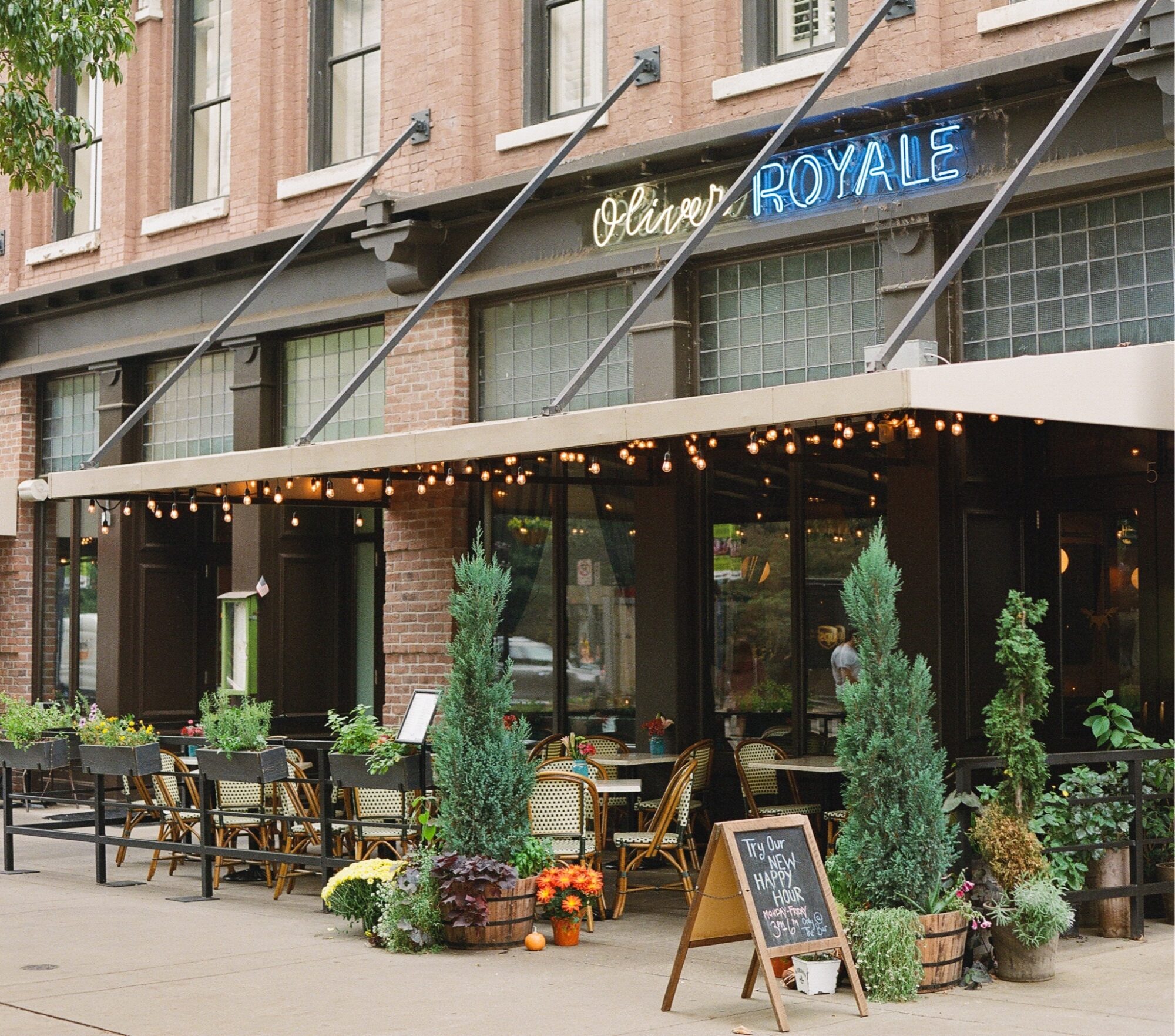
Jeremy Wells: That’s really cool to hear that story of how you guys kind of bootstrapped everything and just kind of went for it. I love those types of stories. I had the chance actually to visit The Oliver Hotel this past summer and take a little tour of it. It’s just a really, really impressive and awesome property you guys have built there and experienced. So really, really neat. I love hearing the history of that and how you and Philip kind of did all that. It’s kind of interesting. We’ve had a number of guests the podcast over the last couple years that it seems like that timeframe of like the mid to late 2000s through some of that, those economic issues and everything that happened along that. And you mentioned kind of on the heels of that. You acquired the hotel and did a lot of the renovation. What do you think your experience kind of going through that 2008, 2009 economy? What did you learn going into that and why did you see kind of, I guess, the silver lining or the opportunity in this type of property?
Timing is out of your control. But you can always be ambitious.
Ethan Orley: I think, listen, timing is everything in real estate. And so it’s all about, I guess, applying timing is out of your control. But you can always be ambitious. And if you don’t meet opportunity with gusto, then you’re nowhere. So I would say that we just kind of lucky. I could also look back and say like, “Wow! That was the best time in our life to go buy property. Why don’t we buy more?” The reason is simple. We had no money. So, I mean, we weren’t geniuses. I think it was a special time and I haven’t seen those types of opportunities arise, and especially in the Southeast. So the other thesis of this was Philip and I lived in New York, we’d been around the world, and we both knew that Middle America, I’ll call it Middle America, it’s really not, but everything between the coasts was wanting of that boutique hotel experience. James Beard Restaurant, the kid that went off to the coastal cities and brought back their expertise. I mean, every town, urban rejuvenation has been going on for 25 years in a lot of cities. But Knoxville, it’s semi-recent. It’s only the last 15 years. Nashville has only kind of come up in the last 15 years. And in Detroit where I’m from, it’s only been the last eight or nine years.
So what we knew being students of real estate and being of the generation that wanted to see our historic buildings and our downtown areas kind of come back to life, we didn’t want to be part of the suburban sprawl of prior generation. And so we did know like, “Oh, wow!” Like, “We probably shouldn’t be developing in the Miami’s, LA’s, New York’s. We should be developing in the secondary and tertiary markets of the country where people are starting to come, raise young families, but they want that big city experience of the great restaurants and the high design.” So we knew that. And by the way, 21c and a lot of other hotel groups saw the same thing, Louisville, Lexington, St. Louis, Bentonville. We ended up falling to other markets, Nashville, Atlanta. Now we’re in Oxford, Mississippi, and in South Lake Tahoe. But I think the overall theme for us has been find secondary tertiary markets that still have not yet experienced having those types of properties and they know what they’re like. They’re like, “Oh, we saw this in this other town. Why can’t we have one here?” So that met with grit, determination, and good timing kind of led us to where we are today.
Jeremy Wells: That’s really smart.
Dustin Myers: Yeah. I mean, it sounds like it’s this combination of great timing and just understanding like placement, being strategic about which areas are hungry for the types of projects that you guys are putting together. And then I think also just a strong brand vision. I see that with a lot of your hotels and projects, just like a really thoughtfully designed and unique experience that you’ve created from a brand experience standpoint. Maybe give us some insight into the inspiration there and how you approach projects.
Ethan Orley: Sure. By the way, I have to go back and correct. I said Booker Brothers, it was actually The Butcher Brothers that ended up financing the Knoxville hotel amongst others back in the 1980s.
Jeremy Wells: They just sound like they should be in prison, like you said.
Ethan Orley: Oh my God. There’s a book. I still have to read the book, but it’s a well-known name. I think some people lost a lot of money, but it’s kind of one of those classic scenarios from that era. But I’ve always had a design urge. I’ve always just loved good architecture and art and graphic design and I’ve always been attracted to that just in general. I think Philip has also had an eye for design. He liked just kind of great execution. He and I both had traveled considerably in high school and college, stayed at a lot of great hotels, a lot of just crappy hotels as well. And I think we knew the difference. And I think we were both attracted to independent hotels, probably for different reasons. But we both wanted to create our own vision. And I think the idea of just buying into a franchise was just like not going to get us up in the morning. And so that was never an option ever.
Dustin Myers: Yeah.
Ethan Orley: It wasn’t about necessarily the money. It was about I think obviously making sure our projects were economically and financially feasible and sound, but exciting and something we could be very, very proud of and something we could put our heart into. And hopefully, actually, we talk about as well, like, “Well, if we get it dialed in to where the design and the graph design is really good and theoretically costs us the same to execute as a franchise hotel, but we save seven, eight or nine percent franchise fees, then we automatically come out ahead.” So it wasn’t just about, “Oh, we want to be able to put our name on it.” It was like, “Oh, we can put our name on it. It can be ours. We can be proud of it.” People would be like, “Oh my God, I’ve never seen that before.” And we can make more money. And so who doesn’t want that? It was a tall win-win. As far as design inspirations, when I was in New York, the Ace Hotel made its debut in Midtown. And I think that changed a lot of people’s kind of conception of what a hotel lobby experience could be like.
I give a lot of credit to kind of our four bearers. You got Ian Schrager’s and the Kimptons. You got Alex Calderwood who really made a huge impact in kind of changing people’s perceptions of what that boutique experience is, which by the way, everything was boutique before the Howard Johnson’s and Holiday Inns. Everything was just a very kind of… I was either a beautiful five-star classic European standard hotel or I was a bed and breakfast, but it was all personalized. It’s only been this 80-year period or maybe 60-year period of the franchise cookie cutter.
Philip and I loved the standards and the Ace’s and the BD Hotels in New York City where we spent a lot of time and I think it was automatic that we were going to make our hotels to rise to that design level and graphic design execution. And so when we opened our first few hotels, we automatically called upon interior design groups in New York, specifically in Brooklyn. And when it came down to graphic design, we really tried to find some really kind of fantastic partners in that regard as well that kind of spoke that slightly irreverent language that really resonated with both of us.
Jeremy Wells: Yeah. That’s really, really interesting. I love kind of the peak behind the curtain is from your thinking and your approach. You touched on something we’ve heard a lot, even just at Longitude with a lot of our clients who are kind of considering. They have a property that’s coming up on the franchise agreement that’s ending and they’re kind of going back and forth of, “Should I sign up again with a franchise agreement or should I rebrand this and reposition it and do my own thing?” And I think you touched on like kind of the sexier part, so to speak, of like having that brand freedom and being able to implement your own voice and design and interiors and have control over that. I think one thing that we hear a lot too, and I’m sure you guys have solved for this over the years, but just like the perceived safety of the chain and as far as distribution and having those marketing dollars and that support and just the distribution through all the channels and et cetera, how have you guys kind of managed that over the years for all of your properties and helped improve that upon what the chains might offer?
Ethan Orley: Great question. You sound like the chief credit officer of every bank I’ve ever had to our bank loan. What’s your reservation system? Well, Mr. and Mrs. Chief Credit Officer, there was no such thing as a reservation system, as there was in the 1970s, ’80s, and ’90s. The internet changed all of that. Now people have points, loyalty matters a lot, and that’s a challenge. I think the way we’ve thought about this is if we’re some hundred keys and we have a really striking property and there’s not as much competition as there are, it’s not crazy, we should be able to strike out on our own and get our fair share of market with or without a reservation system or a loyalty program.
Now you start crawling up to 150 keys, 200, 300, I think it changes everything. If you don’t have a strong brand, it’s kind of based in a primary city where people are like, “Oh, wow!” Like, “So and so stayed there.” That gets a lot more challenging. I don’t think I’m willing to take on all that risk today. But I think if you’re some hundred keys and you have a really special product with a great F&B program, I think there’s plenty out there in methods of advertising between Google AdWords and local word-of-mouth marketing that you can survive and thrive. And there are great examples of that and I won’t bore you with what those are, but the independent brands have continued to strengthen. But there is a place 100% for the franchises and they’re very, very smart with their branding. We’ve considered it for larger properties here and there.
Dustin Myers: Yeah, I totally agree. It’s the less but better mindset. And I think you articulated it well, if you’ve got 300 rooms you’re trying to fill, maybe that’s a little different story. But when you’re trying to do something really unique and special and you don’t have a massive number of beds to fill, like you can find the people who care about that and are willing to take the risk on a property that maybe they’ve never been to before or heard of before.
If you’re able to get out in front of a customer base and thrive without [franchises], it’s a sure way to pocket an extra seven or eight percent.
Ethan Orley: Yeah. And some people are kind of working the hybrid model, the curios, the autographs, the Unbound Collections. I mean, there’s a zillion soft brands, which is basically you’re paying the same thing. I mean, there’s a time and place for everything. So I don’t want to blanket statement for those people who are listening to this podcast because there’s a time and place for everything. But if you got a great design, you can always, if somebody point out to me years ago, “If you have a great hotel with a great design, you can always go back to the corporates and they will gladly sign your business up to be a franchise.” But on the front end, if you’re able to get out in front of a customer base and thrive without them, it’s a sure way to pocket an extra seven or eight percent.
And so I won’t call others who do it at cop-out by any stretch because at some point, you got to deal with your lenders and your equity investments require. And again, there’s a time and place for everything. But it’s definitely a much easier world to live, to execute it I think today. Although a lot of people are doing what we’re doing today. You’re not the only boutique hotel game of town. Everyone has access to great designers as well. So things can constantly evolve as you know.
Jeremy Wells: Yeah. And just piggybacking on your point there. I mean, as you mentioned, a lot more people are looking at doing that. So for the certain type of property it could be a detriment to be encumbered for a 10, 20-year period with a franchise agreement, whenever you come to like want to sell it or exit that property. So we’ve had a number of different deals that we’ve looked at where it’s a great property, but it’s encumbered for this period of time and you don’t want to have to pay the fees to step away.
Ethan Orley: The fee to get out under that, the claw of that very thick HMA. So we’ve really, really been fortunate to have fantastic partners, investors, lenders. Sometimes it takes a hundred phone calls to get to the right group that says, “You know what? We like you guys and we think this is a risk worth taking.” It’s taken us a little bit longer to get there. But we’ve managed to create much more latitude and independence with our decision making. So the other part, not to kind of drag this out, but there are some markets. I’ll give you an example, Detroit. I’d love to do a project in Detroit. And there’s some great hotels up there between the Foundation, the Shinola, The Siren, I’m missing one other one, they are all independent. And it’s funny. It’s almost like a cartel, right? Maybe it’s the opposite of a cartel, but if they all kind of hold their ground and don’t go brand or franchise, whether they’re paying a fee, then consumer Joe and Jane really are going, “Hey, what are the four best hotels in this market?” There are no loyalty points at that point and they’re fine with it. Again, it’s all about the market and who you’re competing against. You just have to look at each market on a case-by-case basis, and that really kind of dictates usually how we enter the market and what we’re willing to acquire and what decisions we ultimately make.
Dustin Myers: Yeah. Ethan, you’ve had a chance to kind of be on a lot of different sides of this from acquisition to development, ownership and management. What would you say is the most challenging part of this business and what do you think is the most gratifying?
Ethan Orley: Oh God. I would say that most people would say that people management is it’s a love-hate relationship. Managing people takes a lot of effort. It’s also the most gratifying when it works out well. When you get your team working together and you accomplish a goal. I’ll give you an example. We had this farm-to-table dinner for our restaurant called Ellington’s at the Fairlane Hotel in Nashville. We hosted through Edible Nashville, a local food oriented magazine, and we had our GM, our chef, our director of food and beverage, our beverage director from a different hotel and our new pastry chef, who’s insanely talented, all working together, put on the most incredible dinner and it put such a big smile on my face. And I don’t care how much work it took to get there. It was worth every minute of my time to see that team working together.
When you manage, you’re building teams and you have to work slowly and methodically to gain the trust.
And so when you manage, you’re building teams and you have to work slowly and methodically to gain the trust. You got to build the culture. That’s a totally different game as you know than building a building. Building a building is all about just timing and budget and execution and managing every single dollar. You can go home at the end of the night. You’d be like, “Okay, next morning, it’s a GMP and they’re going to complete the project.” Between the two, I like working with graphic designers and interior designers. I love the design aspect of it. I’d like to say that it’s easier to be on the construction finance side. But when things go right on the management side, it is an incomparable feeling to see your team succeed. And so I won’t give you a straight answer, but I’ll just tell you they both have their challenges and they both have their upside.
Jeremy Wells: Yeah. I think that’s a great answer. Kind of shifting gears to just one of your more recent projects, The Station House, and that one’s in South Lake Tahoe, right?
Ethan Orley: Yeah. So Philip and I had this rule where we’d only do a property that was a four-hour drive from Nashville. He broke the rule.
Jeremy Wells: It’s a little bit further.
Ethan Orley: Like, “I got this email for a hotel in South Lake Tahoe. I’ll just fly out there and take a look. I’ll call you tomorrow when I get there.” Calls me. He goes, “Ethan, we got to do the deal.” I go, “You got to be kidding me. It’s two flights away. Plus, it’s an hour drive. You could have picked out a further location from Nashville.” He said, “Hey, listen, it’s a really cool post-and-beam 1970 style exterior corridor hotel, two blocks from the banks of South Lake and it’s a Best Western and this thing does not want to be a Best Western.” It did in 1970, but now it does not want to be a Best Western. And we’ve been talking about doing one of these projects. All of our friends were doing motel turnarounds at the Catskills. Right? Or in Montauk or what you guys are doing with your projects.
And so we kind of had project envy. That’s a bucket list-type project. We want to convert a cool ’70s motel. So we did it. We actually did all the interior design ourselves as a personal challenge because we didn’t have that many projects going on in 2019. So we did the interior design ourselves. We flew overseas. We picked up and got all the furniture, shipped it over, soup to nuts. It was a very long, yet extremely satisfying project, though we did open up in 2020 in the middle of COVID. So that was a challenge. No different than anybody else experienced. And as it turns out, flash forward to today, South Lake Tahoe is having a bit of a Renaissance. We were not the first to do what we did. Base Camp was first to market 10 years ago and then Justin over at Coachman set an incredible job with that property. And so we thought, “Okay, well, they did it, they were successful. We could probably kind of be successful on the heels of their accomplishments.” And so that was also just like, “Hey, great property, good basis, and a really good opportunity to work on a property that had really great bones with a great location.”
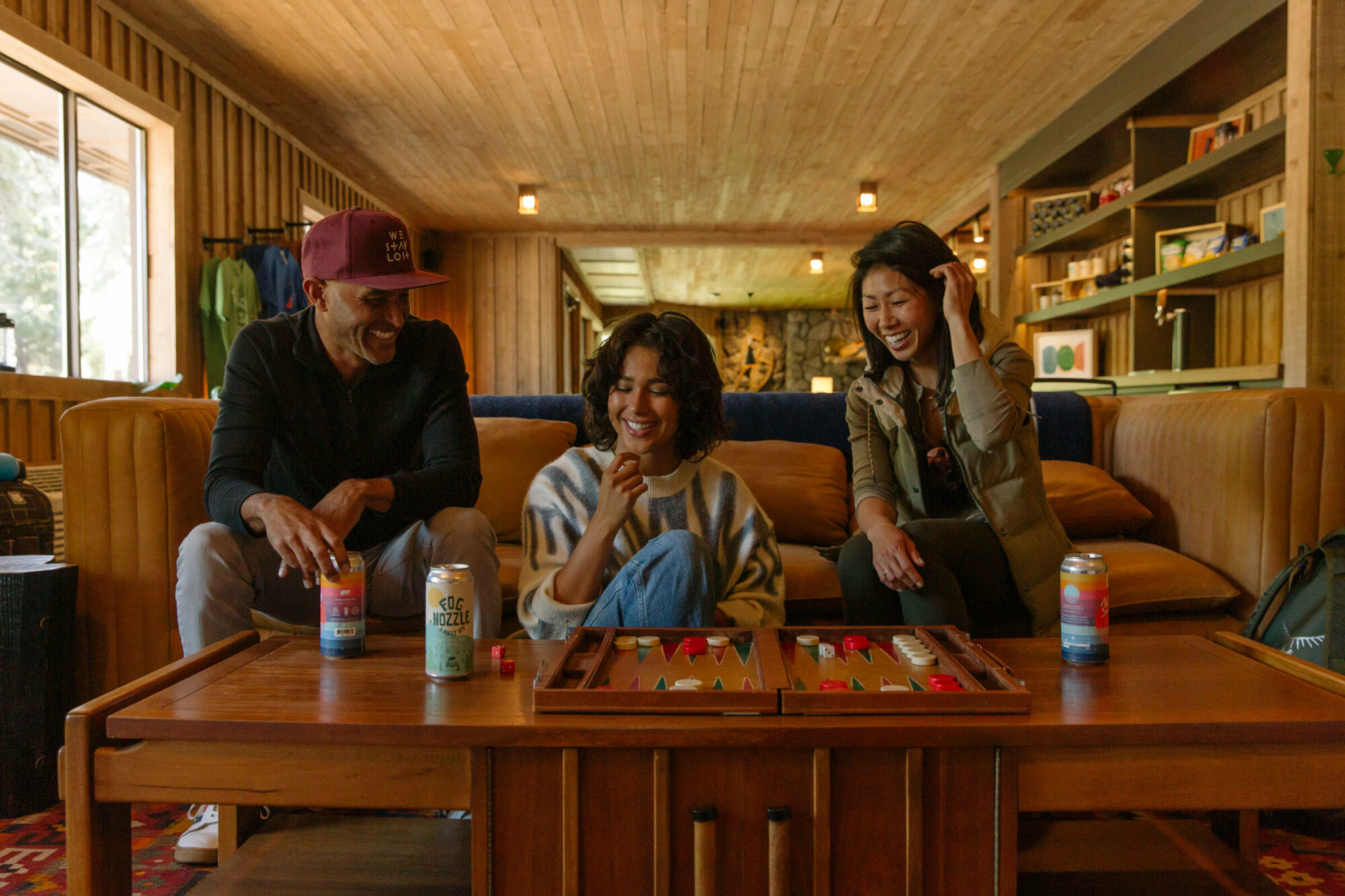
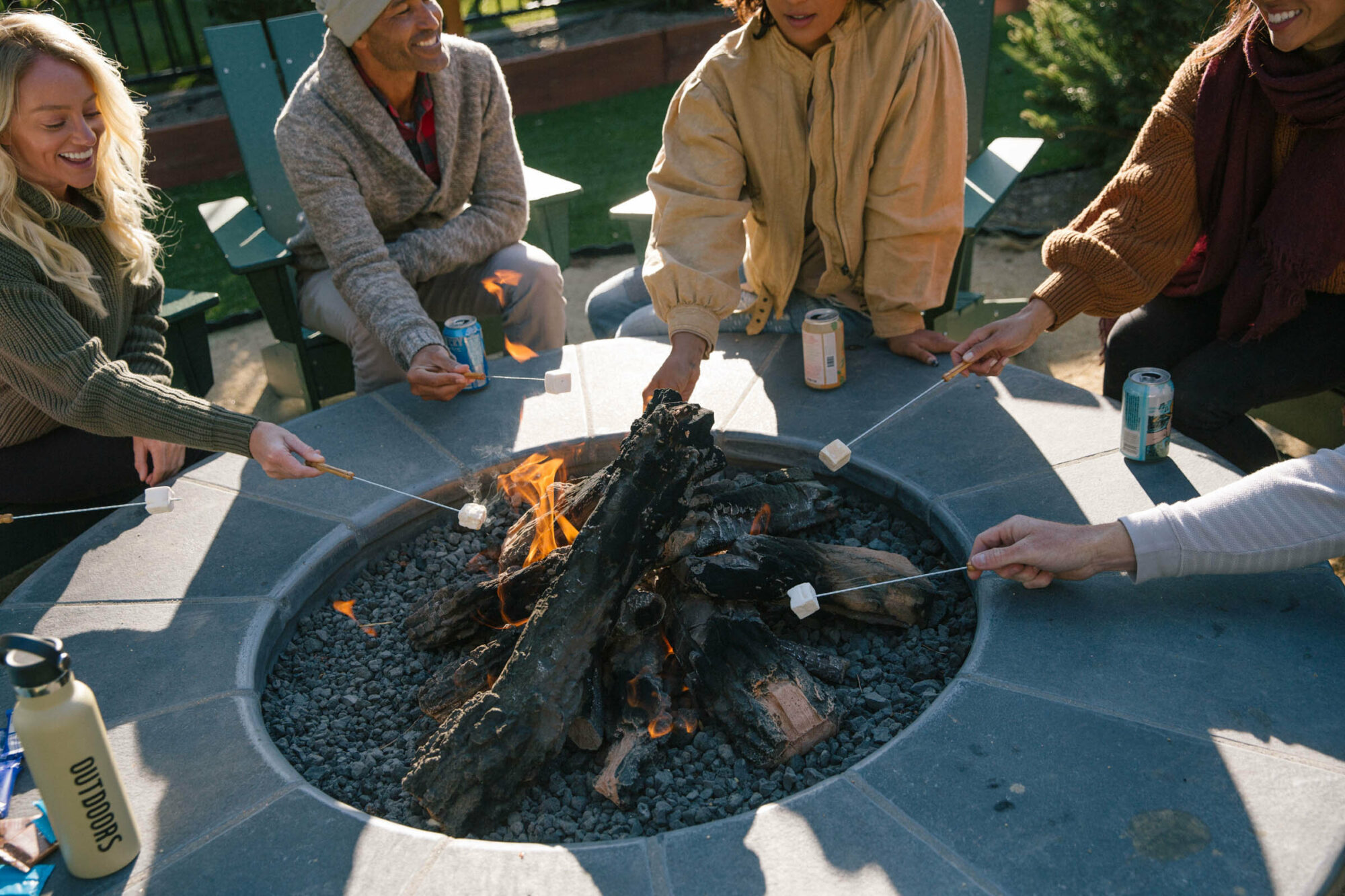
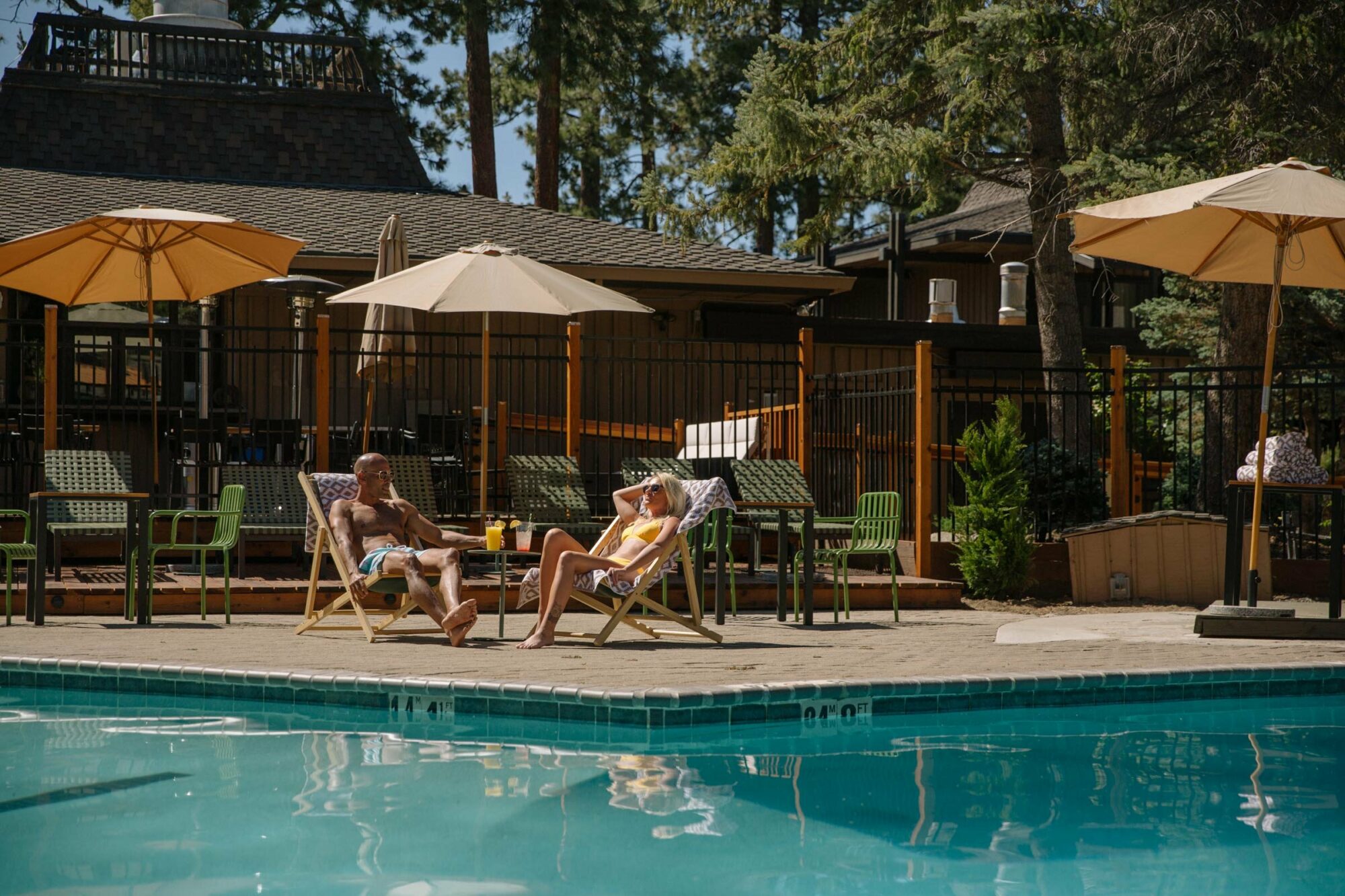
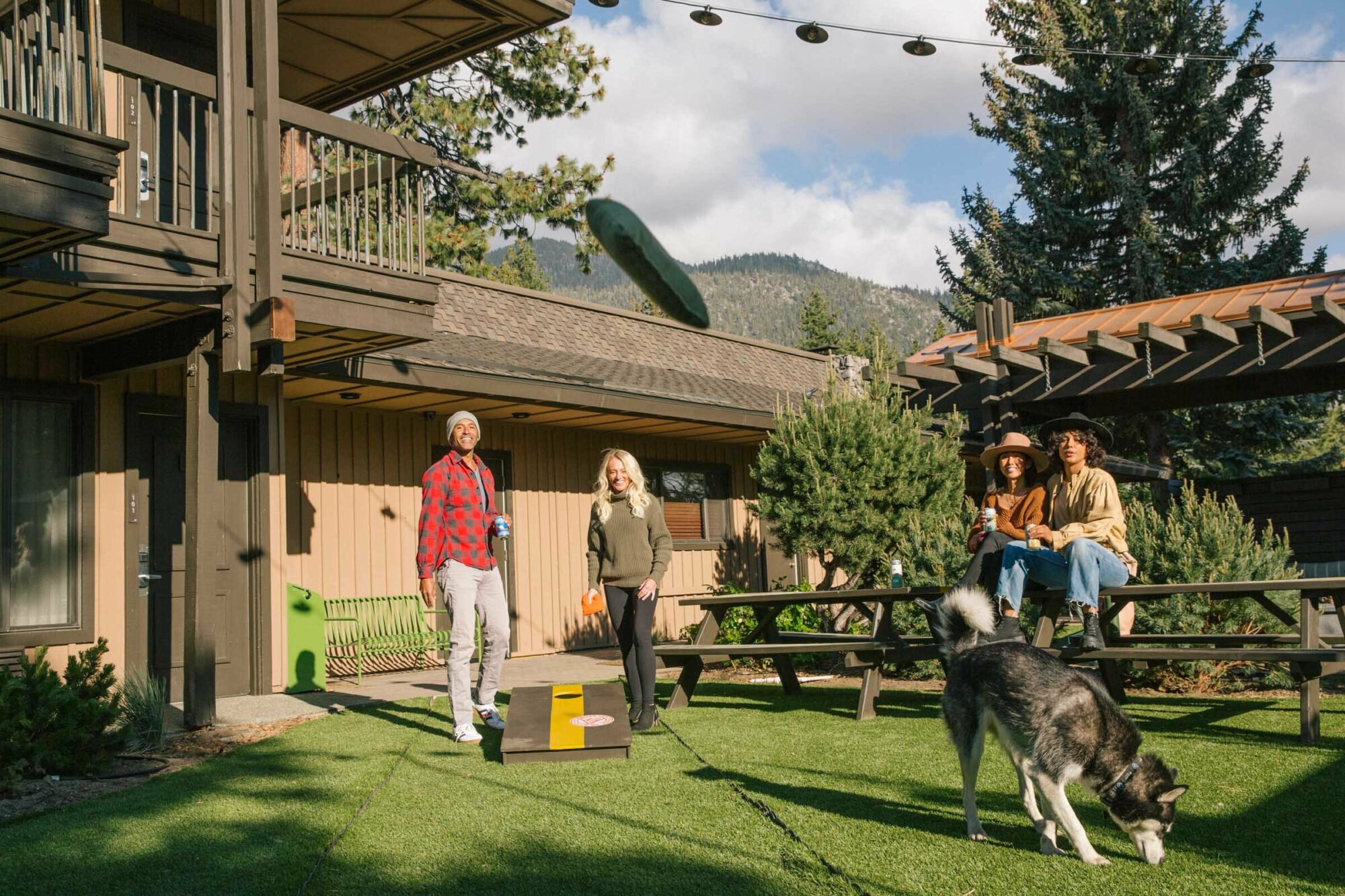
Jeremy Wells: Yeah. Yeah. I would love to visit that property. Just looking at the photos, it just looks so like such a unique design and aesthetic. I had no clue you guys did that yourself. So that’s really awesome. So great work.
Dustin Myers: Yeah. When I first came across Station House, I told Jeremy that is one of my favorite hotel projects I’ve ever seen.
Ethan Orley: You guys are kind.
Dustin Myers: It resonates with me.
Ethan Orley: Well, I think we both have kind of an affinity for that, kind of that campy slightly irreverent, but with a theme that kind of hearkens back to like a different generation. So we really want to kind of play up that ’70s and not just do Edison light bulbs and wood paneling, if you will.
Jeremy Wells: Yep. Cool. Kind of shifting gears to another topic here. I know that Oliver Hospitality from what we’ve gathered, you guys are really intentional about giving back and doing community involvement and things like that. But what does that look like to you guys and how do you guys approach that?
Ethan Orley: So we started doing a few things back several years ago with our restaurant, Oliver Royale at Knoxville. One of our team members, Sondra Richardson, I think really, really kind of spearheaded it. And so she was instrumental in getting us involved in the local food bank and hosting fundraiser dinners in a restaurant. We’ve continued to promote that at all of our hotels and restaurants.
So yeah, I won’t tell you that it’s kind of an official policy, but it’s kind of something that we do, and we’d like to do more of. I’ll also say that because it was the right thing to, do during COVID when people were losing their apartments, losing their income, we created a small employee kind of financial aid fund as well that, again, just felt like the right thing to do. It was no questions asked, bringing your receipts for food utility bills and we’ll get it paid on the spot. And that was that.
Dustin Myers: Wow.
Jeremy Wells: Wow.
Ethan Orley: And so I think it goes a long way with your entire team that they know that like, “Hey, it may only be a dollar. It may only be a hundred dollars, but these are people that if things really fall apart, I might have a chance at getting a second chance here.” I think it’s just setting that culture of, “Hey, we can’t give everybody everything, but we’re here to help you and we’re here to expand your career opportunities as well.” It’s not necessarily one percent towards the planet or ten percent of our bottom line. I mean, it’s more of just the mentality of, “Hey, we got to do the right thing.” And at the end of the day, whether people recognize it or not, whether we do it anonymously or upfront, it sends the right message to the community and to our local team.
It’s just setting that culture of, “Hey, we can’t give everybody everything, but we’re here to help you and we’re here to expand your career opportunities as well.”
Jeremy Wells: Yeah. Just matter of being a good human sounds like, which is cool.
Dustin Myers: Yeah. I mean, that’s what hospitality is, right? Just like caring about people, making them feel special, meeting needs, letting them feel seen and heard and sacrificing on the behalf of others. So that kind of came up in a previous answer as well. So that’s just really inspiring. Love that. Yeah.
Ethan Orley: Yeah. You guys probably read the book, Setting the Table, and we’ve all kind of been I think somewhat, I’ve at least kind of been a minor devotee to kind of the motto of, “Well, take care of your employees first and the rest will get taken care of.” I don’t really think about our guests and how they’re being taken care of because I know that we’re bringing in folks into our company that are hospitality minded. And as long as we’re treating them with respect, the rest gets taken care of. So I don’t mean to be dismissal of our guest, but they are being taken care of because we are taking care of our crew. And I try to be a pretty casual down-to-earth, door open policy type of leader. And I hope that resonates. I think it has.
Dustin Myers: Yeah, absolutely. As you look to the future, what are you most excited about? I know you’ve got a couple projects kind of in the works. And what’s the future of all of our hospitality look like for you guys?
Ethan Orley: So right now, we’ve got six operating hotels and we’ve got two more construction projects in the pipeline. We should probably be at around eight hotels in hopefully 24 months. But with construction, anything is possible. We’ve got a really interesting project out in California, right now it’s called Marconi Conference Center and it’ll be rebranded as Lodge at Marconi. We were given the opportunity to manage the Marconi Historic State Park, which is an hour north of San Francisco on Tomales Bay, really gorgeous part of the country. We will be investing a considerable amount of money to renovate a number of turn of the century 1970s buildings for both accommodation units, housing units, for employees and conference center and event space. And so it’s a really exciting, fun project. Again, another bucket list project. I think it’s kind of how we run our business. It’s like, “Oh, we’ve always wanted to do a hotel that’s like X.” And so no two project is the same, which is a challenge, but it keeps things really interested. And our sales team and ops team I think enjoy the fact that we can go from a city hotel. For example, the Clermont in Atlanta has the world famous Clermont Lounge adult entertainment bar in the basement. From that to Marconi State Park, which is really a kind of an environmental educational playground and one of the most beautiful preserved parts of the country is really a fun kind of challenge and it’s also I think a nice reprieve that you can kind of put two different hats on at any time of the day.
In addition to that, we’re working on the Andrew Johnson project, which will end up being rebranded as the Hotel Americana. It’s 160,000 square foot, 12-story red-brick, 1920s high rise in Downtown Knoxville. We’ve been working on it for about five years and that’ll yield around 169 suites. We’re going to do a dinner, separate club. With the music venue, we’re doing a jazz club. It’s a really big, exciting project. It’s our chance to, again, come back to a city where we got our start in the hospitality business, a good reputation a committed and excited audience. And we’re about to really kind of jump to a whole another level there.
We have a great urban renewal project in Downtown Clarksville, Tennessee. It’s 45 minutes northwest of Nashville. We’re doing a project that encompasses a large hotel, eight restaurants around an outside mall and a large parking deck to support both the restaurants and a brand new 5,000 seat stadium that the city and County of Clarksville just put together. So some really exciting projects ranging from state parks to urban renewal in kind of tertiary markets in Tennessee. I think that’s ultimately what keeps us going is just having fun with what we do and executing at a very kind of professional level with a very team.
And just to kind of answer the last piece, which is I grow the company. I wake up every morning thinking about giving our team opportunity. People want to grow. They want to make more money. They want to see the world. And so if I’m not growing, they’re not happy with me. So frankly, I’m in my position, frankly, for our team members. And as funny as that sounds, I think it’s partially true. I work for them. They don’t work for me. I promise you.
Dustin Myers: That keeps it fun. That’s so cool. Those are incredible projects. Can’t wait to see them.
Jeremy Wells: Yeah. Awesome. Well, we can’t wait to see the progress over the coming years and just follow along with BNA and Oliver Hospitality. You guys are doing incredible work, Ethan. So thank you for taking a few moments and chatting with us. Is there any way that people can get ahold of you guys or find out more?
Ethan Orley: Sure. I think best website for us is oliverhospitality.com. And they’re welcome to reach out to me personally at Ethan@BNA-re.com. That’s spelled Bravo, November, Alpha, hyphen re, like real estate. And that’s about as complicated of a domain that I will ever want to buy.
Jeremy Wells: Awesome. Ethan, thank you so much for joining us. It was a pleasure.
Ethan Orley: It was my pleasure as well. Appreciate you guys and looking forward to working with you guys again soon.
Dustin Myers: Yeah, we’ll see you around.
